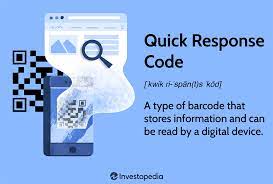
QR Code scams :- Quishing entails deceiving individuals by presenting an action as harmless or essential, while the actual intention is malicious, aiming to gain access to personal information, bank credentials, and other sensitive data.
The rising trend of online payments has provided scammers with multiple opportunities to employ their skills on any one of us.
Phishing, an enduring threat that has taken on various forms over time, has now embraced a new strategy called “quishing,” exploiting QR codes for deceptive purposes. With QR codes being widely used for instant access to information, people often scan them without verifying their authenticity.
QR CODE SCAM :-How to protect ourselves?
When participating in online marketplace transactions, it’s advisable to refrain from scanning QR codes unless it’s for a legitimate purchase, preferably paid in cash. If someone becomes a victim of a QR code scam, swift action is crucial – contacting the bank immediately to report the incident and possibly temporarily blocking the account if unauthorized access is suspected.